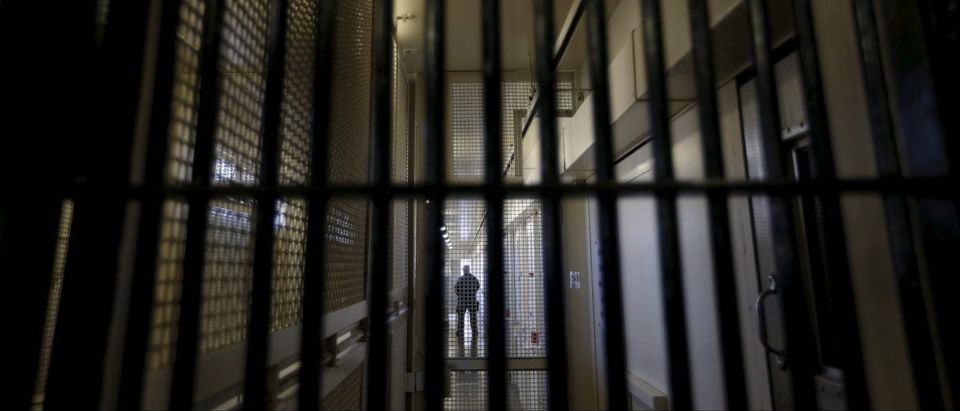On election night, Americans from across the nation sat nervously glued to their TVs or frantically refreshing their web browsers to learn who might be our next president, but there were other important issues being weighed by voters. Californians and Nebraskans both considered measures to end their capital punishment programs. However, unfortunately, after valiant efforts in both states, the campaigns to repeal their death penalties came up short.
Despite Election Day results, this is not a watershed moment for capital punishment supporters. If anything, it was likely just a final desperate surge of a death penalty whose existence is gradually being threatened with extinction. It’s become abundantly clear that capital punishment’s days are numbered as more people are turning against it. The death penalty is increasingly being seen for what it is: nothing but an irrevocably broken government program, and as such, many Americans and state governments are abandoning it. A September Pew poll demonstrates this point. The polling group found that support for capital punishment has reached its lowest point in more than forty-years, and there is good reason to believe that support will continue to wane.
Conservatives were once considered the death penalty’s staunchest support base, but not any longer. Conservatives are turning against capital punishment in never-before-seen numbers because many of us view the death penalty as a violation of our core principles, included valuing life and promoting fiscal restraint and limited government. Notable national leaders, including Colonel Oliver North, Jay Sekulow, Richard Viguerie, and Dr. Ron Paul, have all voiced their opposition to the death penalty. Elected conservatives are also joining the effort to end capital punishment. In just the past few years, Republican legislators from Kansas, Kentucky, Missouri, Montana, Nebraska, Ohio, South Dakota, and Utah have sponsored repeal legislation. Moreover, the conservative state of Nebraska actually repealed the death penalty legislatively in 2015, and deep red Utah nearly did the same earlier this year.
Evangelicals and Hispanics are also rejecting the death penalty. The National Association of Evangelicals changed their pro-capital punishment position to one that expressed concerns about the practice. Meanwhile, the National Latino Evangelical Association and the National Hispanic Caucus of State Legislators recently took positions against the death penalty, and Pew even found that the majority of Hispanics oppose capital punishment.
All of these groups and many conservatives have understandably come to the conclusion that the death penalty can no longer be tolerated. Capital punishment repeatedly risks innocent lives. To date, more than 155 people have been wrongly convicted and sentenced to die. The death penalty costs millions more than its alternatives. It doesn’t deter crime. It frequently harms murder victims’ families due to the complex legal process associated with it, and it is oftentimes meted out arbitrarily.
With the death penalty falling out of favor, capital punishment’s demise is likely inevitable, and data from this year backs up this point. So far, only 5 states have executed anyone this year, which demonstrates that in practice most states no longer use the death penalty. Furthermore, as of this month, we’ve witnessed the fewest executions in a single year (18) since 1991. Compare that to when executions peaked at 98 in 1999. Death sentences are also becoming rarer. Last year, America witnessed around 49 death sentences, which represented a record low. To put this number into perspective, there were 315 death sentences in 1996.
Death sentences, executions, support for the death penalty, and states that actually carry out executions are falling to historic lows. At this point, executions are largely being relegated to a few outlier jurisdictions, but even in places that still use the death penalty, like Florida, it has been fraught with problems. The Sunshine State has had its capital punishment sentencing scheme declared unconstitutional twice this year – an embarrassing distinction, to say the least.
Taxpayers understand that they deserve a better return for their investment. Legislators are accepting that the death penalty is becoming indefensible, and capital punishment seems to be slowly going into disuse. Together, this likely spells doom for the death penalty. Regardless of how it happens, the tide has likely begun to irreversibly turn against capital punishment. We have witnessed a decisive shift in momentum during the past few years, and as this continues, the death penalty’s ultimate and unavoidable demise becomes apparent. While the results in California and Nebraska are disappointing, they only represent a regrettable setback, but make no mistake – the death penalty’s days are numbered.
Marc Hyden is the National Advocacy Coordinator for Conservatives Concerned About the Death Penalty. Mark previously worked for the National Rifle Association (NRA) as a Campaign Field Representative in Florida.












